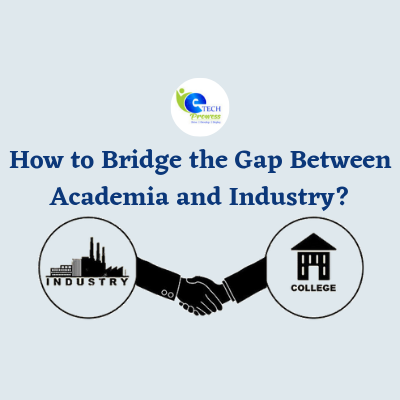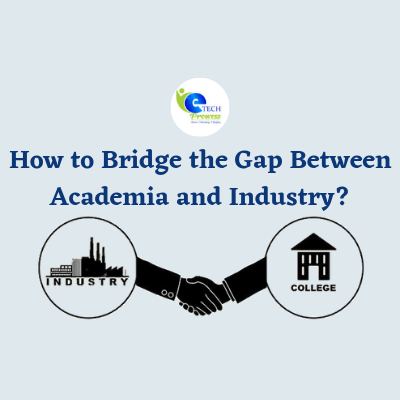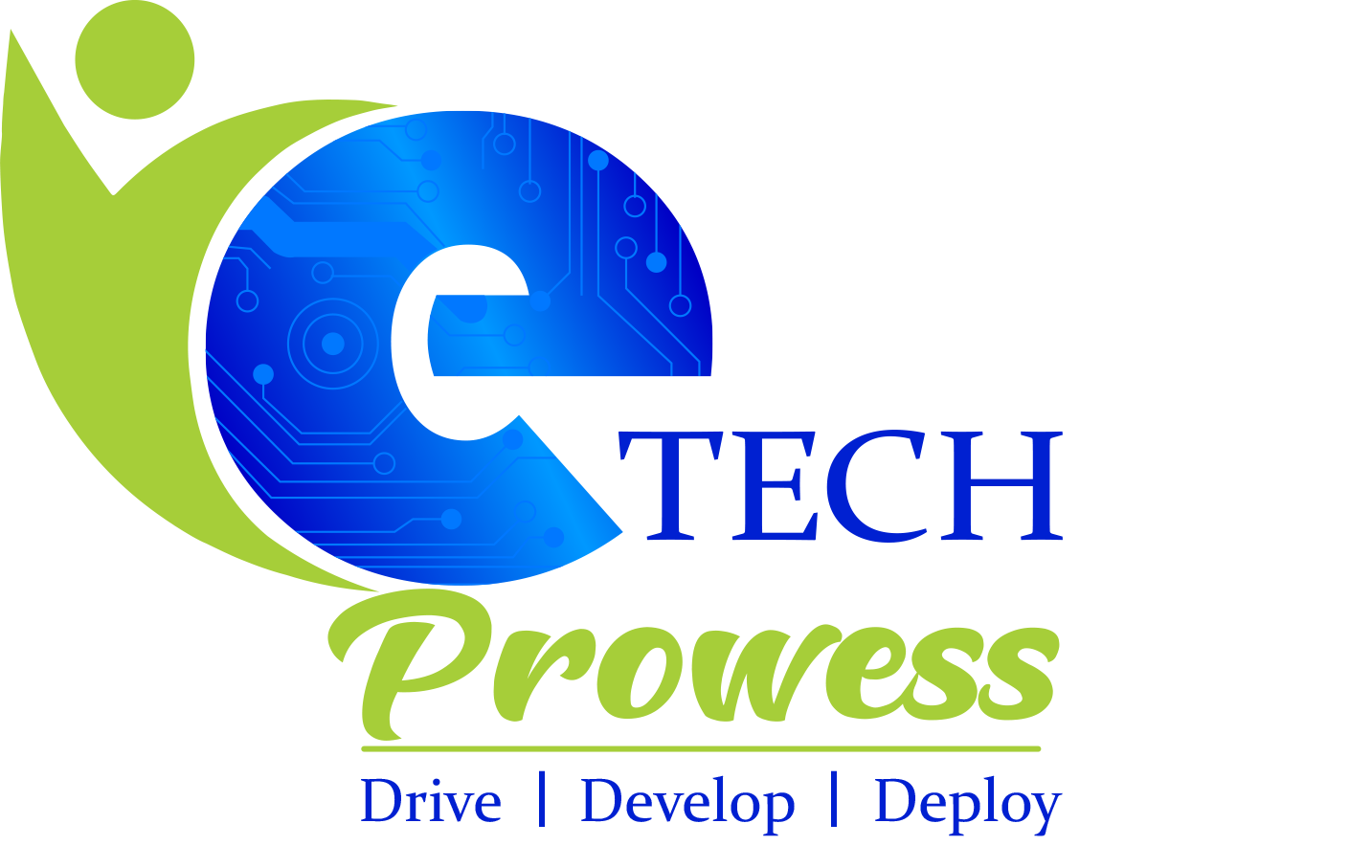
How to Bridge the Gap Between Academia and Industry
 Academia and Industry are two different worlds which operate on different pedestals. Both have different purposes and different ideologies. However, the rapid pace of change in the outside environment is compelling these two different worlds to come together to address and solve some of the real-world challenges.
Academia and Industry are two different worlds which operate on different pedestals. Both have different purposes and different ideologies. However, the rapid pace of change in the outside environment is compelling these two different worlds to come together to address and solve some of the real-world challenges.
So where are we going wrong and what can be done to tackle this challenge? One of the approaches to tackle the problem of lacking skill and job readiness is partnerships between the industry and academia. While predicting the nature of jobs that would be available in the future is difficult, the efforts to prepare people for the jobs should continue. So let’s delve into some of the ways how industry and academia can come together to bridge this gap:
Alignment of curriculum with industry requirements: Considering the evolving nature of industry and changes in the labor market, it has become imperative to ascertain how best the academic curriculum can address various requirements and demands of the dynamic industry. Despite exponential changes in almost every field, college curriculum is often rigid and hard to revise. It is advisable that curriculum is revised regularly and is developed in accordance with what industry needs. Academia can also look at existing pedagogies and see if the same can be improved and made more practical in approach. So far there has been immense reliance on the classroom methodology and a theory-heavy approach, however, the need is to make the entire approach more practical case studies; regularly calling guest speakers from different industries and letting students interact with them can prove to be extremely beneficial for everyone. Furthermore, there are a number of fantastic, industry relevant online courses available which can be merged with the syllabus to give students more insights about the industry.
Emphasis on skill-based education: A recent NASSCOM report suggests that by 2020, 2 out of 3 millennials would like to take up a managerial job within 3 years of their joining and the core skill set required by the industry will change fast and newer skills like creative thinking, higher level problem solving, interpersonal skills, innovation, decision making will be in great demand. However, “Skill-based education is somewhat lacking in all the higher education fields in India and management is no different. The focus of management institutes need to shift from theoretical knowledge to skill based education with a more practical and dynamic approach,” says Roshni Chakrabarty noting recent trends in MBA education. Therefore, besides imparting the core or technical knowledge, academia should also try to focus on the softer and behavioural aspects such as interpersonal skills, leadership capability, attitude, communication skills (with increased emphasis on learning the English language) team spirit and alike which will play critical role in determining the success of individuals once they join the industry.
Workplace exposure through internships, live projects, and corporate interactions: Well-timed and well-deliberated exposure to the industry provides a much-needed experience to the students. They can take the form of internships or part-time projects that students can work on, which provide practical insights about how the industry operates and expose students to the current realities of the workplace. While there is no guarantee that these internships will fetch permanent jobs, it will equip the students to adjust to the needs of the business once they actually join the industry. Such opportunities boost students’ confidence as they learn a lot by being present in the workplace.
Up-skilling the faculty: Apart from only focusing on the curriculum structure, it is also imperative to provide the right exposure and training to the faculty. Most of the faculty do not possess requisite industry experience which comes in the way of imparting practical knowledge about industries. It will be great if the faculty can regularly undertake short industrial projects in collaboration with industry experts. This will help ensure that the faculty is in line with the current industrial trends.
It would be great to see employers coming forward and working exclusively with the academicians to create and develop a shared model for jobs and curriculum to address their specific industry requirements. The successful model will ensure many benefits for everyone -the graduating students will find their transition into industry roles smoother, employers will be able to hire people who are skilled and job-ready and academic institutes will take great pride in seeing their students getting placed with good firms

Reviews